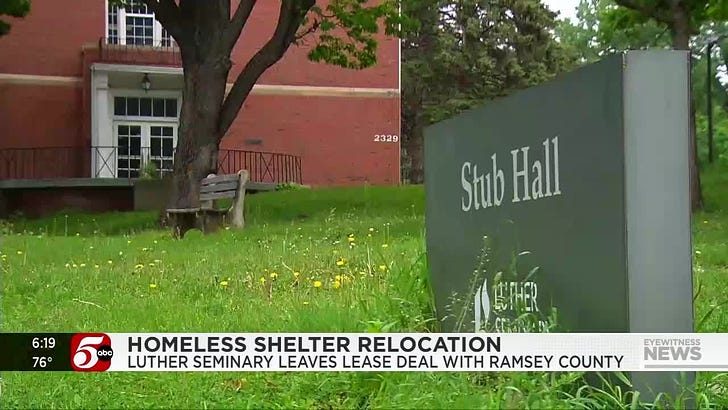
Discover more from Lutheran Confessions
As a progressive Christian of the Lutheran variety, I’m often contemplating what it means to be the kind of Christian I am.
One of the accusations frequently leveled against progressive Christians by other Christians is that we are simply conforming to this world rather than being transformed by the gospel of Christ.
So quite a lot of our communication is rearguard action, trying to defend against such critique. People will say, for example, “You welcome gay people at your church, but that doesn’t mean you approve of their lifestyle, right?”
There’s a lot loaded into such questions. Approve… Lifestyle… Lots of assumptions, lots of judgment. In fact, those who ask such questions seem to be completely unaware of the ways they are being conformed to the thought patterns of this world rather than the freeing gospel of Christ.
That’s not counter-blaming. It’s just trying to draw attention to what otherwise is overlooked by all the Christians (of whom there are legion, I just listened to a bunch of them on NPR the other day) who think they are just “following the Word of God,” as if you can access the Word of God purely rather than through your experience and worldview.
So here’s the thing. I don’t believe being queer is a sin. I think your orientation and gender identity is part of who you are.
You are created in the image of God, and God says of God’s creation, this is very good.
One incredibly revelatory moment for me was reading Queer Virtue: What LGBTQ People Know About Life and Love and How It Can Revitalize Christianity. a few years ago. I realized while reading it my identity as a Christian has been formed as much by being a cis-ally of the LGBTQ as it has been by traditional Christianity itself.
And I am a better Christian as a result.
This is to say, we don’t just tolerate queer people in our community. Nor do we live as progressive Christians and fully welcome them. No, we are being transformed by the virtues they share with us. Our Christianity is queer.
I would argue, contra some Christians who believe that progressive Christianity is conformed to this world, that it is traditional Christianity that has been conformed to the binary, oppressive understandings of sexuality, race, and many other things, and needs to be transformed by the queerness of Christ.
If this intrigues you, if you’d like to learn how the virtues of the queer community help identity the virtues present in Christian Scripture and tradition, then you want to read Elizabeth’s book.
In part I of her book, Elizabeth walks the read through the experience of identifying queer virtue. It’s about identity, risk, touch, scandal, and adoption. This is testimony of the first order, and powerful to read.
In part II, she talks about a priestly people (she herself is a gay priest), and identifies what she believes are marks of a priestly people we can learn from the queer community: Pride, Coming Out, Authenticity, and Hospitality.
For Edman, queerness is not just compatible with Christianity, but is an embodiment of it.
For Edman, authentic Christianity is a spiritual journey that prioritizes the ancient Christian impulse to rupture simplistic binaries, especially those pertaining to the relationship between Self and Other (xiii.).
Edman argues that queer ethical demands clearly and often exquisitely manifest widely recognized Christian virtues: spiritual discernment, rigorous self-assessment, honesty, courage, material risk, dedication to community life, and care for the marginalized and oppressed.
She writes, “For too long, public discourse about LGBTQ people has tended to operate from the premise that queer identity is morally problematic, but that there are specific instances of individual queer people who live upright lives. I argue precisely the opposite: while individual queer people struggle at times with moral failing–as all human beings do–in general I perceive queer identity to have at its core a moral center of high caliber, one that is both inspirational and aspirational. My experience being immersed in the lives of and spiritual journeying of queer people tells me plainly not only that the divine is alive and well in us, but that many of us are deeply attuned to it.”
In her chapter on coming out, which I particularly loved, she offers this challenge to progressive Christians:
Maybe you are already living the liberating strand of Christianity. Maybe you have found it in a vibrant, friendly church that treats kids well and has a nice cluster of gay people in regular attendance. That’s great, truly. But understand this: our faith tells us that it isn’t enough to believe it quietly, to go to church on Sunday with less fanfare than you might go to brunch, or to the grocery store. You have to explain to people what you are doing, and why it matters to you. What you are feeling, perceiving, and perhaps living out in community with others is caught up in what Jesus called ‘the good news,’ and it matters very much that you tell other people about it.
The most important thing that progressive Christians can do to advance an accurate understanding of our faith is to come out as a Christian. And specifically, to come out as the kind of Christian you truly are.
The necessity of coming out is one of those basic things that progressive Christians should be learning from queer people. When you know who you are and what you are about, it matters to tell people about it. But listen up, all you shy Christians out there: queer people know something that you may not know. WE KNOW HOW TO DO THAT.
Begin by getting in touch with your own identity, with Pride. Coming out is first and foremost a conversation that is about you. This matters to understand: you aren’t coming out to people in order to change them. Hopefully you are coming out because your life matters to you, and this other person matters to you, and you want that other person to know who you really are.
I love this book. I recommend it all the time. I hope you’ll read it. What I hope most is that it will shift progressive Christian readers from a quiet position of tacit acceptance to a proud coming out of authentic hospitality that ruptures this world, trapped as it is by so many things, and discovers the virtues of queer Christianity.
Subscribe to Lutheran Confessions
Reflections from a progressive Lutheran pastor in the South.





